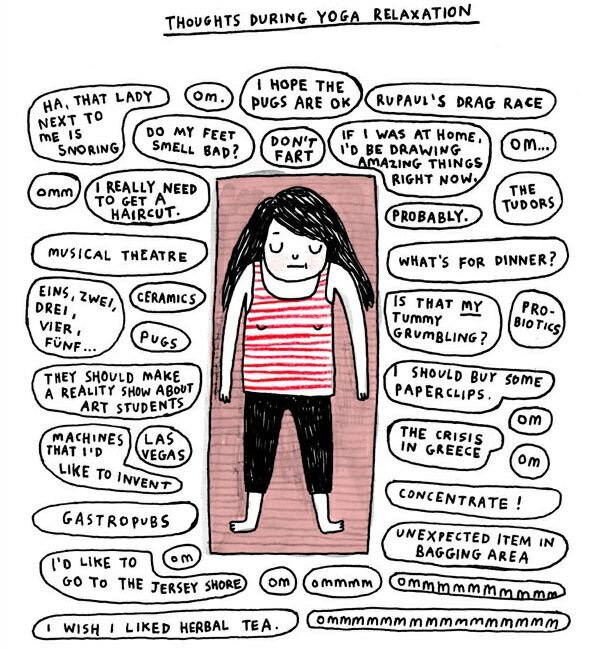Speechless
Call off the battle with mental chatter by listening to verbal thoughts as sounds sometimes.
I’ve loved words ever since I first started to understand them.
I love reading and writing them.
I enjoy listening to them being spoken, sung, whispered, and shouted.
I like to play with words and interpret their hidden meanings.
I’m fascinated by how we use words to convey the truth, deceive, and blur the lines between, and I spend a lot of time carefully selecting the right words to describe my experiences and emotions.
When I began practicing mindfulness, I used to view the words in my mind as adversaries. I believed that the goal of meditation was to quiet my thoughts. Whenever verbal thoughts emerged, I felt disconnected.
Am I thinking? I think I'm thinking. Crap!
I'm doing it again. Rats!
Start over. Don't think.
Hey, I think I've got it. I'm not thinking. D'oh!
Try harder. C'mon!
What is relaxing about this?
I must be the only person who can't do it.
Would you please stop?
Please?
I give up...
This approach has a show-stopping problem: It's normal for the mind to think in words.
Expectations have to be adjusted if you want to stay in the game.
The presence of thoughts doesn’t mean you’re not present.
It means you’re alive. It means your nervous system is working.
Inadvertently making an enemy out of thoughts is one of the most common reasons people abandon mindfulness.
This is a trap we can learn to avoid.
It’s possible to be mindful even when you are thinking
Shinzen Young says being aware of thoughts doesn’t mean you’re not being mindful.
“When does your thought about the past or future arise? It arises in the present moment. And if in the present moment, you know you’re thinking about the past or future, you’re still mindful.”
The real obstacle is not being intimately familiar with how attention works.
We can become more familiar with the thinking process by becoming habitually curious about the components of thinking.
This partly means listening to the words in our mind as sounds instead of trying to get rid of them—sometimes, just for a few seconds.
This takes a lot of practice, but it’s doable.
Ordinary circumstances can help inform this approach to relating to our thoughts.
Spontaneous speechlessness
There are moments when I struggle to find the right words. Sometimes, the environment is so noisy or distracting that I can't hear myself think.
When I hear people speaking in another language, I try to let go of the need to understand and instead appreciate the musicality of the language.
At times, my thoughts seem to flow non-stop, but other times, I notice the pauses between my words and sentences.
Rather than seeing these situations as problems, we can view them as opportunities to change our relationship with verbal thinking. There is something almost magical about finding and arranging words to enhance understanding and bridge emotional gaps.
Intentionally speechless
There can also be unspeakable freedom in letting words escape you now and then.
Listen for commas, periods, and question marks when someone is speaking. Start with low-stakes situations (news, commercials, strangers in public) and then extend the exploration into work meetings, engaging movies, and difficult conversations.
When rehearsing for a difficult conversation, experiment with dropping the search for the perfect talking points and trying to feel the emotions in your body that fuel your need to be heard.
Training your attention by listening closely to words as sounds can enrich your lifelong relationship with the language you rely on to navigate your life.
It might even rekindle the wordless wonder that existed before you could comprehend words.





